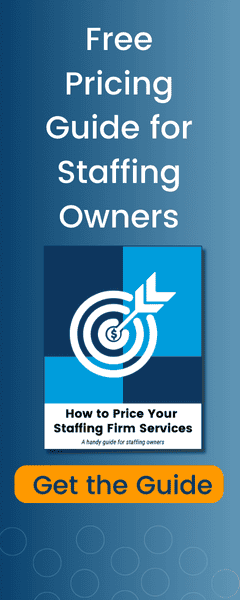Unemployment Tax Hikes on the Horizon? What Unemployment Loans Coming Due Means for Staffing Firms

Last time updated: December 17, 2024

When the pandemic first hit the US and business as usual came to a screeching halt, unemployment soared to extreme levels. Suddenly, a significant part of the population was relying on increased unemployment benefits and for longer than the typical 26 weeks.
That extra money had to come from somewhere. And it came, and went, very quickly — leaving business owners in some areas to pick up the slack later.
After state funds were wiped out, 22 states had to rely on Title XII federal loans to borrow funds. And while the loans were initially interest-free, they began to accrue interest in September of 2021. Now, 10 states – California, Colorado, Connecticut, Illinois, Massachusetts, Minnesota, New Jersey, New York, Pennsylvania and Texas – still owe approximately $40 billion plus interest.
For staffing owners in those states, this could mean potential unemployment tax hikes. To help, we’ll take you through how the unemployment tax system works, what the coming repayments mean for your state and what you can do to prepare your staffing business.
How Unemployment Taxes Work
The tax system behind unemployment funds and benefits is a two-tiered system. You have the federal tax, which funds the administration of benefits, and then a state tax, which pays the benefits issued to workers.
Typically, state funds are replenished by charging employers various amounts of unemployment taxes. The premium amounts are based on the overall health of the unemployment insurance trust fund and what is known as an “experience rate.” The experience rate is determined by factors like:
- Payroll size
- Industry
- Wages subject to premiums
- How much the employer claimed in previous years
But the past two years have been anything but typical. And with state funds depleted and loans coming due, states are putting the burden on businesses to pay it back.
How States Repay the Title XII Loans
States will typically repay the Title XII advances by having higher unemployment taxes. Businesses will have to plan for the higher anticipated costs of unemployment taxes, and that puts the onus on businesses like staffing firms, which have already been hit hard by economic hardships due to the pandemic.
Coming Due in November
If the 10 states fail to pay back the government by November 10, 2022, the FUTA (Federal Unemployment Tax Act) tax rate will automatically increase by 0.3% for the entire calendar year. And states are also increasing their SUI (State Unemployment Insurance) rates to compensate as well. Colorado, for instance, increased their taxable wage base and increased unemployment insurance premiums in 2022.
What Staffing Firms Can Do to Prepare
Knowing that unemployment tax hikes are coming, particularly in the ten states mentioned above, staffing firms have a couple options to keep costs down. Here are a few things you can do to mitigate costs:
- Discuss the expected rate increases with your UI (Unemployment Insurance) claims manager.
- Keep diligent track of unemployment claims, including fraud exams to filter out fraudulent claims.
- Reconcile SUI tax rates used to pay tax contributions with the most recently issued tax rate notices to ensure proper payment.
- Audit your benefit charge statements and appeal to those that appear improper.
- Use strategies to lower SUI tax rates like voluntary contributions, joint account formation, negative write-off payments, payroll variation elections, etc. Note that these will be state-specific.
The bottom line for staffing businesses in these states is to keep diligent track of what is happening so you can prepare for potential unemployment tax hikes ahead.
The information provided on this website does not, and is not intended to, constitute legal advice; instead, all information, content, and materials available on this site are for general informational purposes only.
Up Next















